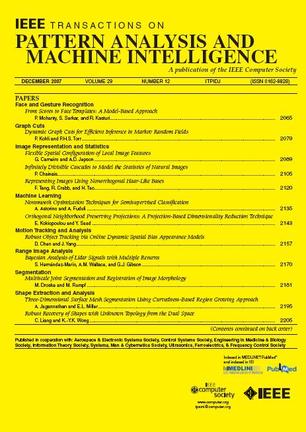Transfer Learning of Stochastic Kriging for Individualized Prediction.
IF 18.6
1区 计算机科学
Q1 COMPUTER SCIENCE, ARTIFICIAL INTELLIGENCE
IEEE Transactions on Pattern Analysis and Machine Intelligence
Pub Date : 2025-09-09
DOI:10.1109/tpami.2025.3607773
引用次数: 0
Abstract
Stochastic Kriging (SK) is a generalized variant of Gaussian process regression, and it is developed for dealing with non-i.i.d. noise in functional responses. Although SK has achieved substantial success in various engineering applications, its intrinsic modeling strategy by focusing on the sample mean limits its flexibility and capability of predicting individual functional samples. Moreover, the performance of SK can be impaired under scarce data scenarios, which are commonly encountered in engineering applications, especially for start-up or just deployed systems. In this paper, we propose a novel transfer learning framework to address the challenges of individualization and data scarcity in traditional SK. The proposed framework features a within-process model to facilitate individualized prediction and a between-process model to leverage information from related processes for resolving the issue of data scarcity. The within- and between-process models are integrated through a tailored convolution process, which quantifies interactions within and between processes using a specially designed covariance matrix and corresponding kernel parameters. Statistical properties are investigated on the parameter estimation of the proposed framework, which provide theoretical guarantees for the performance of transfer learning. The proposed method is compared with benchmark methods through various numerical and real case studies, and the results demonstrate the superiority of the proposed method in dealing with individualized prediction of functional responses, especially when limited data are available in the process of interest.个性化预测的随机克里格迁移学习。
随机Kriging (SK)是高斯过程回归的一种广义变体,是为处理非i.i.d问题而发展起来的。功能反应中的噪声。虽然SK在各种工程应用中取得了巨大的成功,但其固有的建模策略,即专注于样本均值,限制了其预测单个功能样本的灵活性和能力。此外,在工程应用中经常遇到的稀缺数据场景下,特别是对于启动或刚刚部署的系统,SK的性能可能会受到损害。在本文中,我们提出了一个新的迁移学习框架来解决传统迁移学习中个性化和数据稀缺性的挑战。该框架采用进程内模型来促进个性化预测,进程间模型来利用相关过程的信息来解决数据稀缺性问题。过程内和过程间模型通过定制的卷积过程集成,该过程使用专门设计的协方差矩阵和相应的核参数量化过程内和过程之间的相互作用。研究了所提框架参数估计的统计性质,为迁移学习的性能提供了理论保证。通过各种数值和实际案例研究,将所提出的方法与基准方法进行了比较,结果表明所提出的方法在处理功能响应的个性化预测方面具有优越性,特别是在兴趣过程中可用数据有限的情况下。
本文章由计算机程序翻译,如有差异,请以英文原文为准。
求助全文
约1分钟内获得全文
求助全文
来源期刊
CiteScore
28.40
自引率
3.00%
发文量
885
审稿时长
8.5 months
期刊介绍:
The IEEE Transactions on Pattern Analysis and Machine Intelligence publishes articles on all traditional areas of computer vision and image understanding, all traditional areas of pattern analysis and recognition, and selected areas of machine intelligence, with a particular emphasis on machine learning for pattern analysis. Areas such as techniques for visual search, document and handwriting analysis, medical image analysis, video and image sequence analysis, content-based retrieval of image and video, face and gesture recognition and relevant specialized hardware and/or software architectures are also covered.

 求助内容:
求助内容: 应助结果提醒方式:
应助结果提醒方式:


